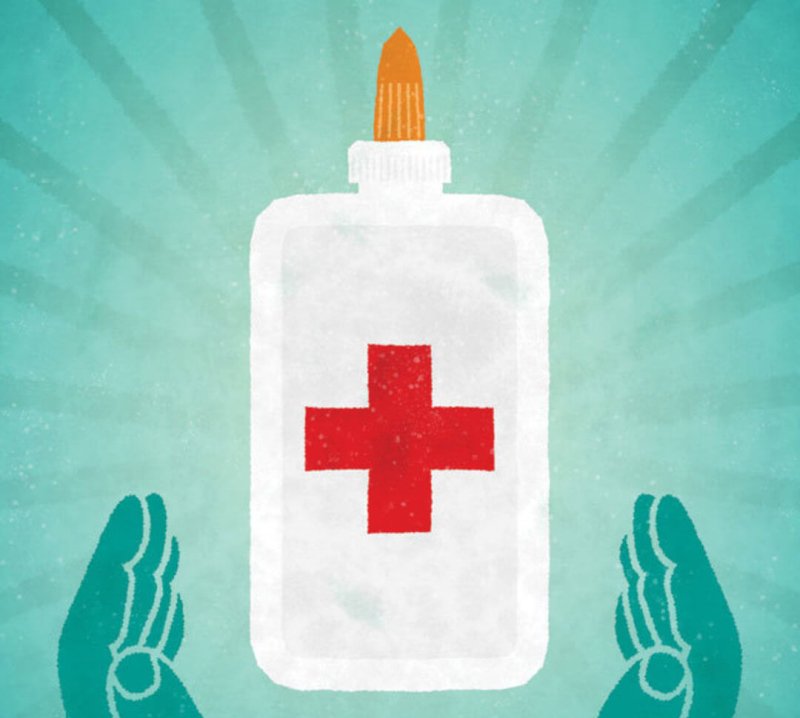Severe traumatic brain injuries, the sort caused by life-threatening accidents or assault that can send people into comas, are very difficult to treat. Even in the best cases, people often have to undergo a long recovery process, and they may experience lifelong complications. But researchers at the University of Georgia, led by Lohitash Karumbaiah, have been working on developing new ways to repair these sorts of acutely damaged brains.
One promising approach developed by Karumbaiah and his team is their brain glue. The glue is actually made of complex sugars, arranged in a particular way to look like sugars naturally found in the brain. Normally, these compounds bind to other proteins that together help protect and repair brain cells. By implanting the glue into people’s brains soon after injury, the hope is that it will boost our natural healing ability.
…
The team’s earlier research suggested that the glue did seem to work as intended over the short term in rats with severe brain injuries, with benefits documented up to four weeks later. But this new study, published last month in Science Advances, found that benefits of the treatment could also be seen 20 weeks following injury.
Rats and humans do share a lot of similar brain circuitry, so it’s very much possible that this glue will be able to help people with these kinds of injuries.































